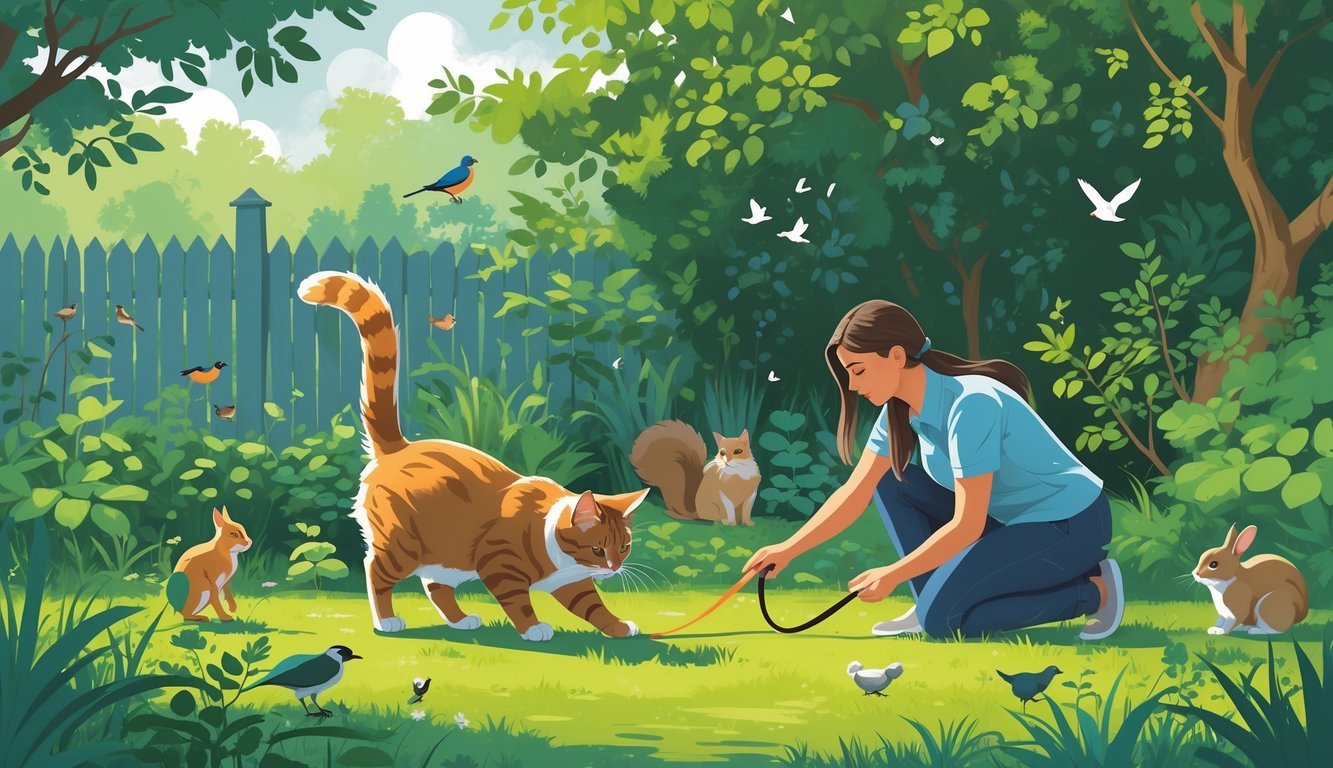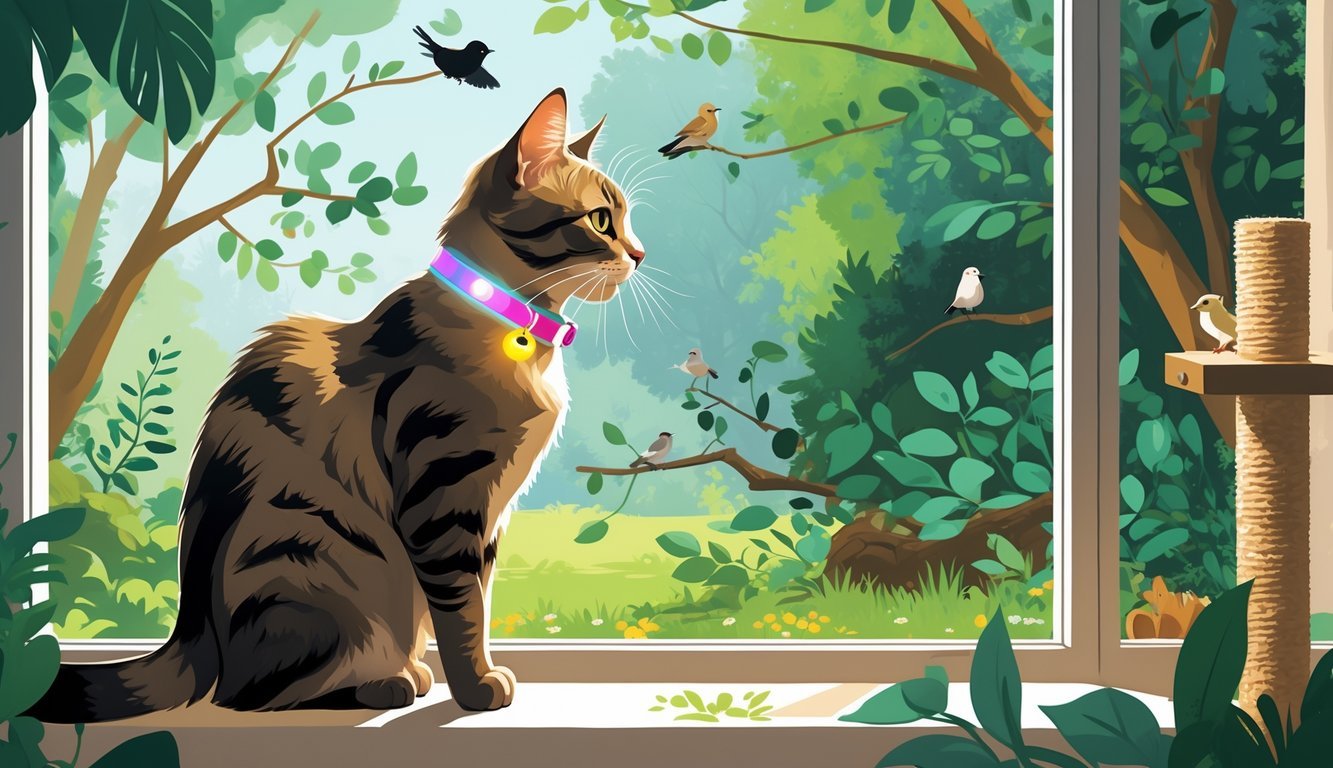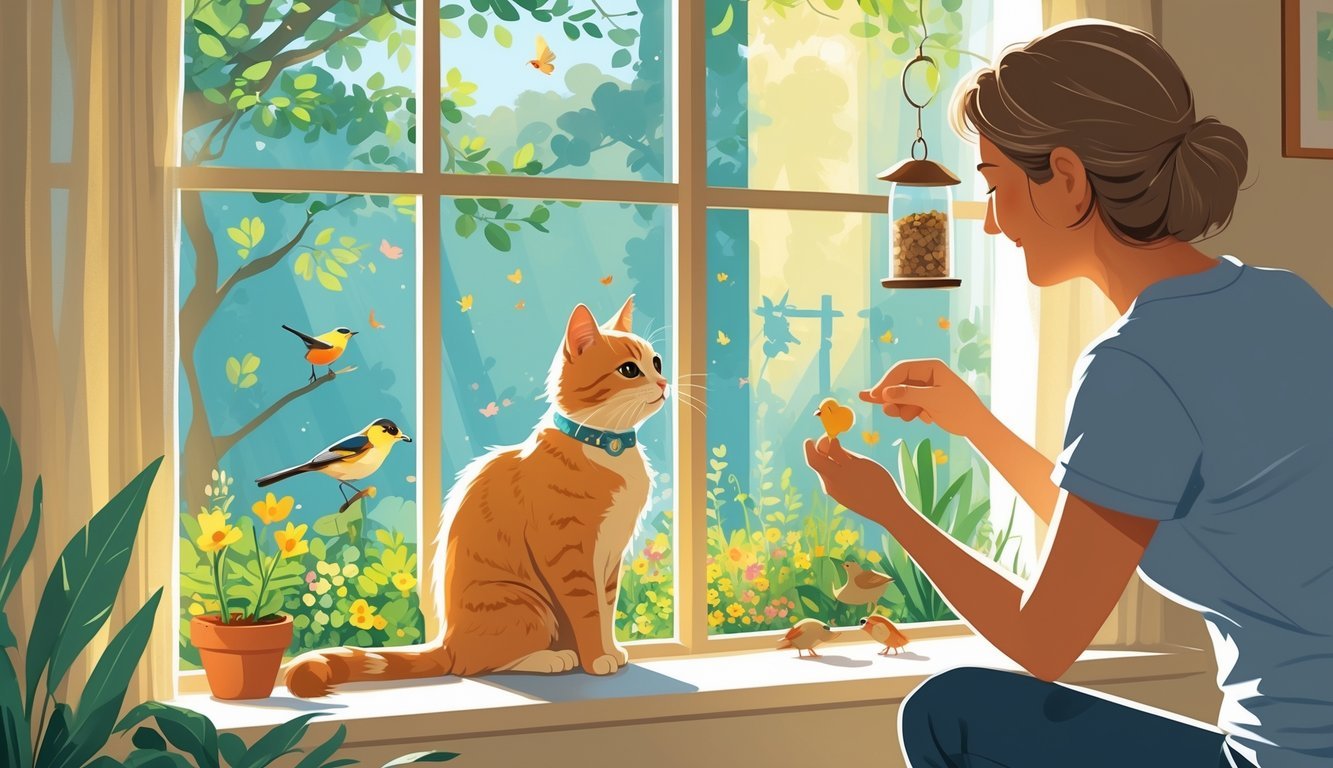PsychNewsDaily Publishers
100 Summit Drive
Burlington, MA, 01803
Telephone: (320) 349-2484
PsychNewsDaily Publishers
100 Summit Drive
Burlington, MA, 01803
Telephone: (320) 349-2484
Cats are instinctual hunters, often impacting local wildlife. Indoor living, playtime, and bell collars can help reduce their hunting behavior while keeping them safe.

Cats can’t help themselves—they’re natural hunters. Their instincts push them to catch birds, small mammals, and whatever else moves. For cat owners who care about local wildlife, this can get pretty frustrating. Honestly, the best way to keep your cat from hunting wildlife is to keep them indoors. You can also try collars with bells, which sometimes help cut down on hunting.
Try giving your cat lots of playtime and interesting toys to redirect that prey drive. Limiting outdoor time—especially around dawn or dusk—can make a surprising difference for both wildlife and your pet.
If you understand why cats hunt and use a few practical tricks, you’ll keep your cat happy and protect local animals. You really can have a healthy, satisfied cat without worrying about what they might bring home.

Cats hunt because that urge runs deep. This behavior hits a lot of animals, especially small birds and mammals.
Pet and feral cats can both throw off the balance of local wildlife. Sometimes, animals even disappear from certain areas because of it.
Cats are born hunters. Their ancestors survived by catching food, and that instinct still lives on in pet cats.
Even if your cat never misses a meal, they’ll still want to stalk, chase, and pounce. Playtime that mimics hunting helps, but you can’t fully erase the urge.
Pet cats that go outside and feral cats both hunt wildlife. In places like Australia, native birds and small animals just don’t have defenses against cats.
This leads to fewer native species. Cats often kill animals even when they aren’t hungry, so the impact adds up fast.
Feral cats cause even more trouble since they’re always outside and always hunting.
In some places, cats have actually wiped out certain species or caused huge drops in wildlife numbers. Birds and small mammals that are easy to catch get hit hardest.
Islands and sensitive habitats seem to suffer the most. If you care about wildlife, it’s worth thinking about how much your cat goes outside.
Cutting back on outdoor time or using collars with bells can help protect native animals. Every bit helps keep ecosystems healthy and species around for the long haul.

You can take a few simple steps to cut down your cat’s hunting. The way you handle outdoor time, what your cat wears, and how you keep them entertained all matter.
Your choices protect both wildlife and your cat from disease or injury.
Keeping your cat indoors works best for stopping hunting. Indoor cats can’t catch birds or rodents, so wildlife stays safe.
Staying inside also lowers your cat’s risk of accidents or disease. If you want your cat to get some fresh air, try supervised time or a secure outdoor enclosure.
Letting your cat roam unsupervised increases the chance they’ll hunt. Setting a night curfew helps too, since that’s when a lot of small animals are out and about.
Bright or patterned collars make your cat stand out to wildlife, so it’s harder for them to sneak up on anything. Some collars have bells or noisemakers that warn birds and rodents.
Collars can be risky, though. They might get caught on branches, so always use breakaway collars that your cat can escape from if needed.
Avoid collars if your cat wanders in dense areas, but if you use one, check it often to keep your cat safe.
Indoor cats still want to hunt. Give them toys that mimic prey—think feathers or small moving toys.
Play with your cat every day to help them burn off energy. Puzzle feeders and interactive toys keep their minds busy and help curb boredom.
Swap out toys now and then to keep things interesting. A tired, entertained cat is less likely to try hunting if they do get some outdoor time.
City and suburban cats have plenty of chances to hunt wildlife. You can help by limiting outdoor time or using a fenced yard.
Keep your yard less appealing to rodents by cleaning up food scraps and locking down trash bins. If your cat goes outside, supervise them or set up a cat run.
This way, your cat enjoys fresh air but has fewer chances to hunt. You might even want to talk to your neighbors about keeping local birds and animals safe—sometimes a little awareness goes a long way.

You can cut down on your cat’s hunting by changing when and where they go outside. Some tools and tricks help limit hunting without putting your cat at risk.
Knowing why cats hunt and how their behavior changes as they age also helps you manage the problem.
Keep your cat indoors at night to lower the chance they’ll hunt. Nighttime is when most small animals are out, so cats have more opportunities then.
You can also build a safe outdoor space like a catio for fresh air without letting your cat hunt.
Collars with bells can warn birds, but they don’t always stop a determined cat. Some cats figure out how to move quietly, even with a bell.
Watch out for collar safety—branches and fences can snag them, so always use breakaway collars.
Try putting bird feeders up high or inside protective cages. Motion-activated sprinklers or noisemakers can scare cats away without hurting them.
Talking to your neighbor about keeping their cat indoors or supervised might help too.
Cats often hunt just because it feels natural, not because they’re hungry. Sometimes they bring home animals as a gift or to practice their skills.
Even well-fed cats might hunt out of instinct alone.
Most cats slow down with hunting after they turn 5 or 7 years old. Older cats usually have less energy for chasing prey.
But every cat is different—some keep hunting all their lives.
Honestly, training a cat not to hunt can feel like an uphill battle—it’s just in their nature. Still, you might have some luck by distracting your cat with toys or an extra round of play before you let them outside.
If you want to be sure your cat isn’t hunting, try keeping them indoors. Some people set up secure outdoor spaces, like catios, to give their cats fresh air without the risk.